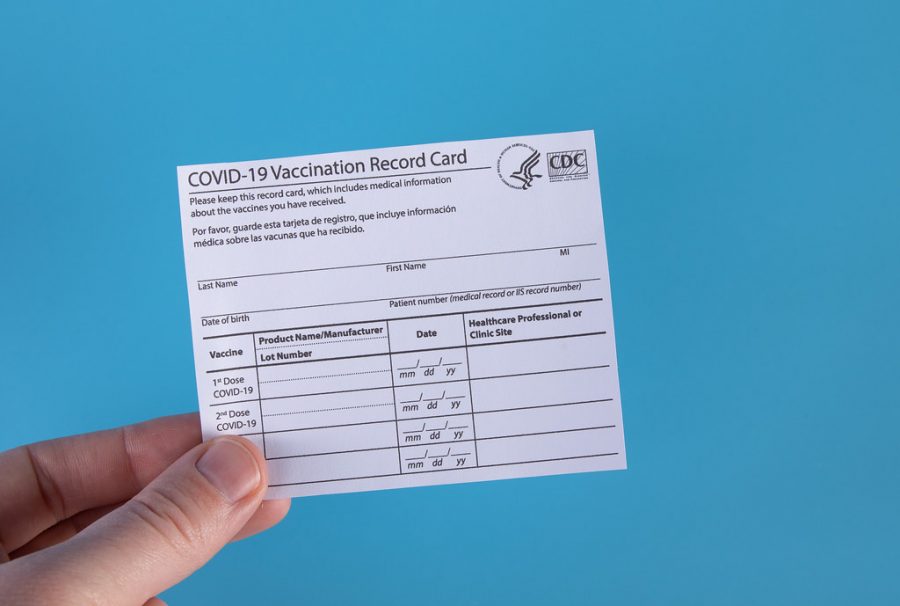Why students should get vaccinated
Photo courtesy of flickr.com
Courtesy of Jernej Furman on Flickr.com
As downtowns timidly begin to wake up, roused by the fervent rays of a pandemic almost below the horizon, one problem stands to threaten everything: vaccine hesitancy. There are a multitude of reasons why adults refuse to get vaccinated: religion, skepticism, fear and laziness. Some not only refuse to get the vaccine themselves, but they also refuse to take their children to get it.
As a country, we are hitting a logarithmic ceiling; fewer and fewer people are getting vaccinated as hundreds of unused shots sit in commercial freezers. In order to boost vaccination rates and increase public safety, all eligible middle and high schoolers should be required to get vaccinated in order to go to school in person.
Across the country, vaccines are becoming readily available for those ages 12 and older. Pharmacies, drugstores and doctors’ offices alike offer the vaccine for free, so accessibility isn’t an issue for those who want to get it. In New Jersey alone, there are 109 locations at which one can get vaccinated.
On May 12, the CDC approved the Pfizer vaccine for adolescents from ages 12 to 15. Since then, more than 600,000 adolescents have received at least one dose of the vaccine. The CDC projects with its emergency vaccine authorization, some 17 millions youths will now have easy access to safe vaccinations.
Not only are COVID-19 vaccines accessible, but they are also clinically proven to be safe and effective. All vaccines must undergo clinical trials before they can be distributed to the public. “The Pfizer COVID vaccine has been shown in studies to have 100 percent efficacy with robust antibody response in participants 12-15 years old, similar to that of 16-25-year-olds,” said Dr. Eunhee Emily Shih, who works at New Providence Pediatric Center. The vaccine can prevent one from getting seriously ill if they do contract the COVID-19 virus. Those who are vaccinated can also protect their at-risk friends and family by reducing the spread of the virus.
Experts at the Mayo Health Clinic claim that herd immunity for COVID-19 is around 70 percent, not a terribly far cry from the 60 percent of New Jerseyans who have already received one shot of the vaccine. Herd immunity is absolutely crucial to protecting highly vulnerable individuals, like those with certain pre-existing conditions or immunodeficiencies. In vaccinating those who can be vaccinated, those who medically cannot also enjoy safety and peace of mind.
It is especially necessary for kids to receive the vaccine. Schools are filled with hundreds of students who, although they are told to keep six feet apart and wear masks at all times, do not always exercise these precautions when the adults responsible for them are not looking. Requiring all students to get vaccinated before attending in-person classes would reduce the risk of the virus spreading even without masks or social distancing. With more students returning to school, resulting in crowded hallways and more students in classrooms, it is more difficult to social distance.
With the approach of summer break, students are especially vulnerable to contracting and spreading the disease, for not a uniformly immunized school population. Previously at WHS, a great number of students traveled for winter and spring break. With the onset of relaxed travel and quarantine restrictions, it is inevitable that numerous Westfield students will be in close contact with COVID-19. If unvaccinated, those students carry the possibility of bringing it back to the school or the community in the fall, threatening the wellbeing and lives of unvaccinated individuals.
Thus, to maintain the health of the many, Westfield students from middle and high school should be required to get vaccinated.

